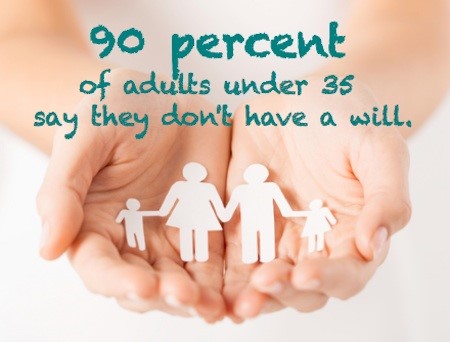- Serving The Woodlands, TX
- 281-825-8674
- Law2@daniell-law.net
How to Choose a Guardian for Your Children In Your Will

PLANNING IS THE KEY TO ANY SUCCESSFUL OPERATION
2022-10-03
2023 Increase of the Federal Lifetime Estate and Gift Tax Exclusion
2023-10-06If you have young children, you absolutely need a will. Even if you don’t have many assets, one of the most important things a will does is name a guardian for your children if you were to die. It’s a terrible thing to think about, but part of the responsibility of being a parent. Ultimately, most parents say that although they avoided doing it, creating a will gave them peace of mind that their children would be taken care of, no matter what.
How to Choose a Guardian for Your Kids
If you have minor children, you need to name a guardian for them in your will. Choosing a guardian can be the most difficult decision for parents when it comes to estate planning, because unlike the short-term job of an executor, parenting is a long-term job.
When choosing a guardian, it’s important to consider both your child’s experience and your family’s values. Moving to an entirely new city or changing schools might be intensely stressful for a child, especially after losing their parents. Choosing someone who lives near you or would be willing to relocate would be ideal. Also, consider the values that are important to you and who you think would best be able to offer a family environment similar to yours.
Many people end up choosing family members to serve as their child’s guardian – an aunt and uncle, grandparent or cousin that’s already close to your child.
But not everyone has a good option within their family for a variety of reasons. Maybe your parents aren’t able to take on the responsibility or raising a young child due to age or health conditions. You might know your sister or brother has said they never want kids. And while you might love your family members very much, for whatever reason, they might just not be good candidates for a guardian.
If you don’t have an option for a guardian within your family, choosing a family friend can be a great alternative. Think about the people in your family’s life – another friend or family from church, school, or your neighborhood. Maybe it’s a college roommate who you’ve stayed in touch with all these years, or a friend from childhood.
Once you’ve thought of some potential candidates, sit down and talk with them about serving as your child’s guardian. It’s a huge responsibility, so you want to give the person a chance to say no if they truly feel unable to take it on.
You’ll also want to name a second or third choice for guardianship, in the event that your first choice was unable to serve. In addition, a probate judge does have the authority to declare a guardian unfit, so make sure you choose someone without a problematic legal history.
If you don’t choose a guardian for your children, most likely, the state will first try to place them with a family member. If no family members are available and no one else in your child’s life comes forward to take the responsibility, the state would ultimately place the child in foster care.
Managing Your Children’s Finances with a Testamentary Trust
If you’re writing a simple will, you may want to include a testamentary trust – a part of a will that can create a trust for your assets until your children are mature enough to manage them. A testamentary trust puts your assets in a trust that is managed by a trustee of your choosing until the assets are transferred to your kids – at a certain age, or at a milestone like graduating college or getting married.
You may choose to make the trustee the same person you’ve chosen as a guardian, but you don’t have to. Perhaps the person who you think would be a great parent to your child isn’t that good with money. Consider naming a separate person to help them manage the finances while they take care of your kids.
Writing a Letter to Your Child’s Guardian
Estate planning lawyers encourage clients to write a letter to the person they’ve chosen as a guardian for their children if they die.
“In it, you can write how you want your children to be raised, what kind of school you want them to go to, anything that’s important to you,” says Myers. “It’s optional, but it’s something that makes people feel more comfortable, that they are able to convey their thoughts and wishes to their loved ones.”


